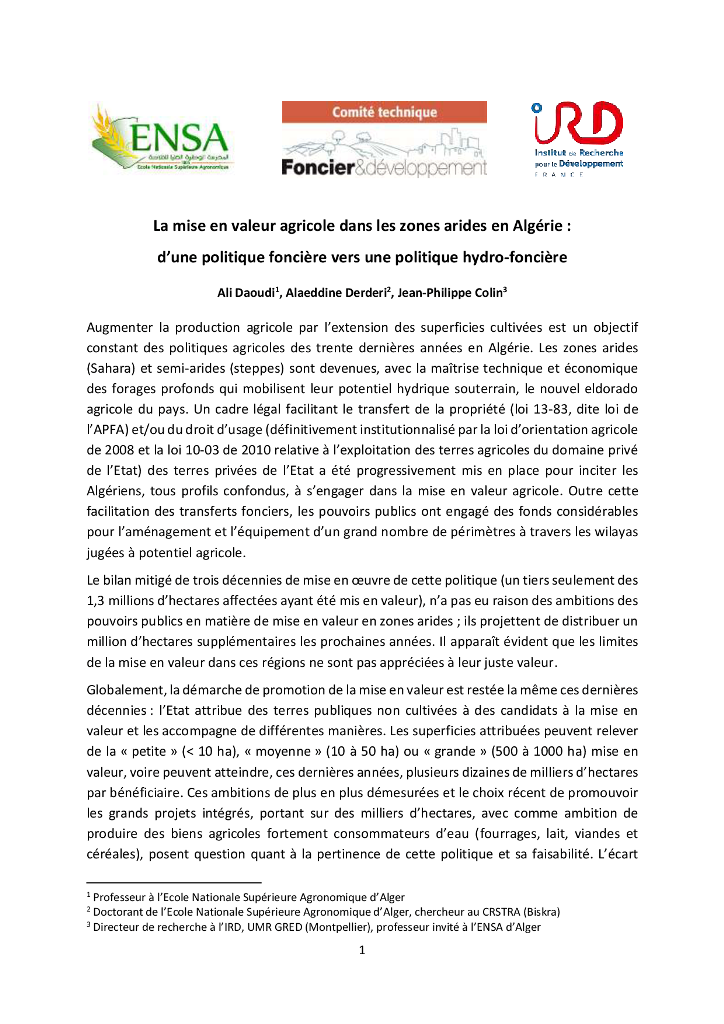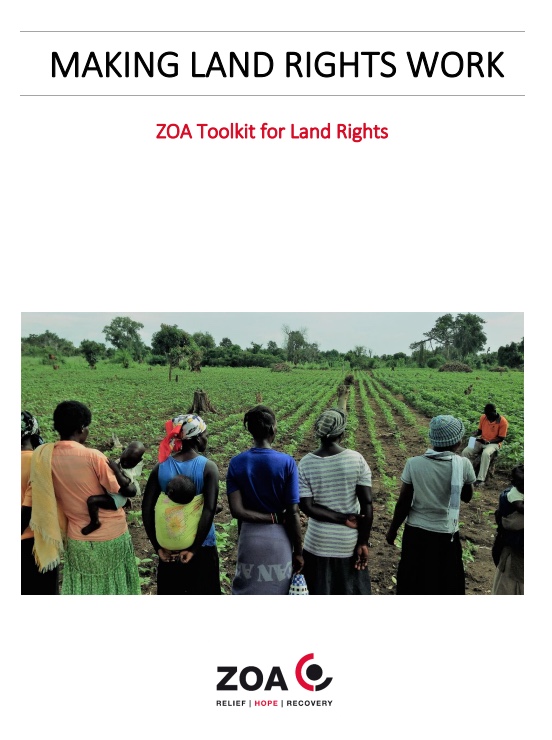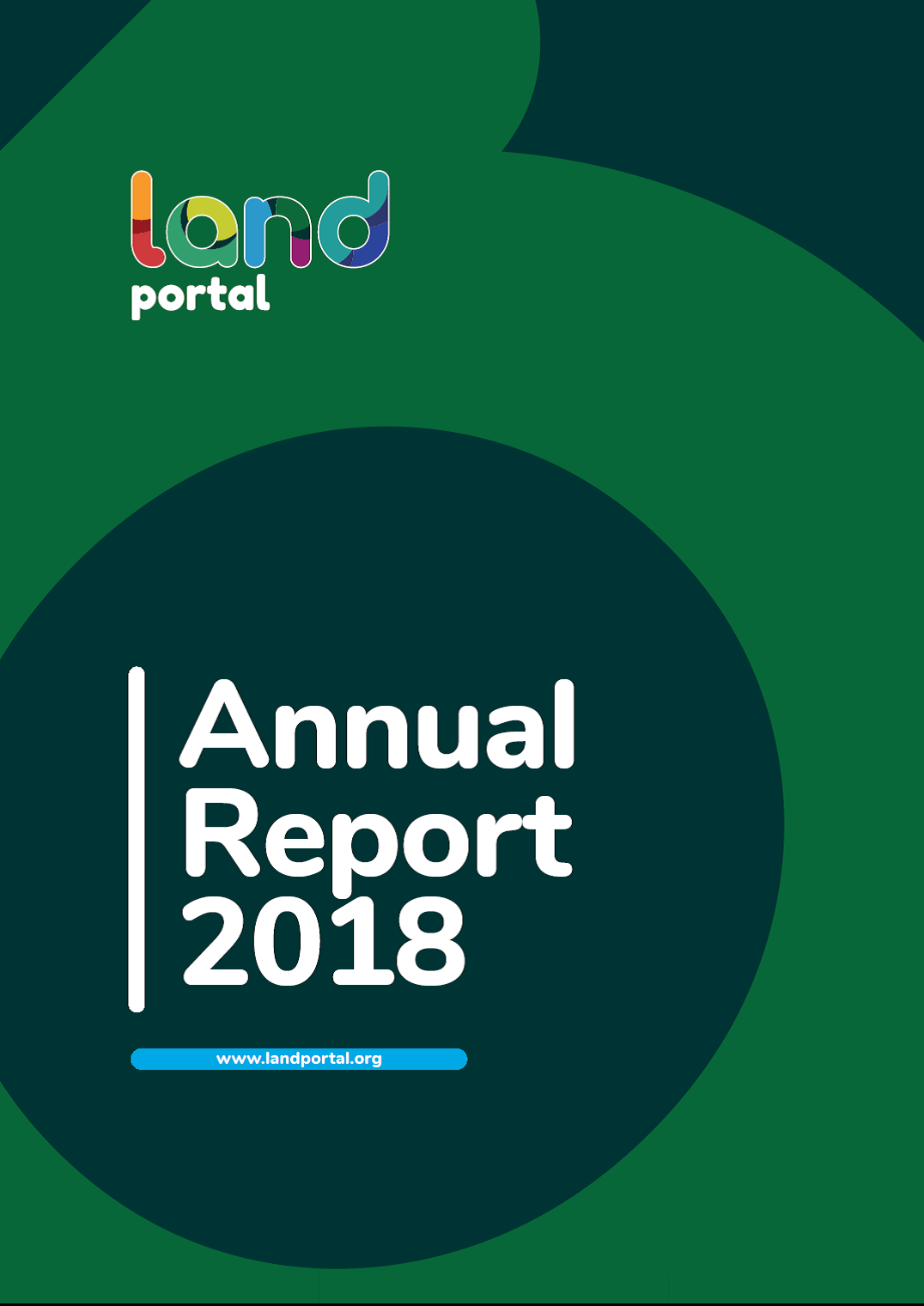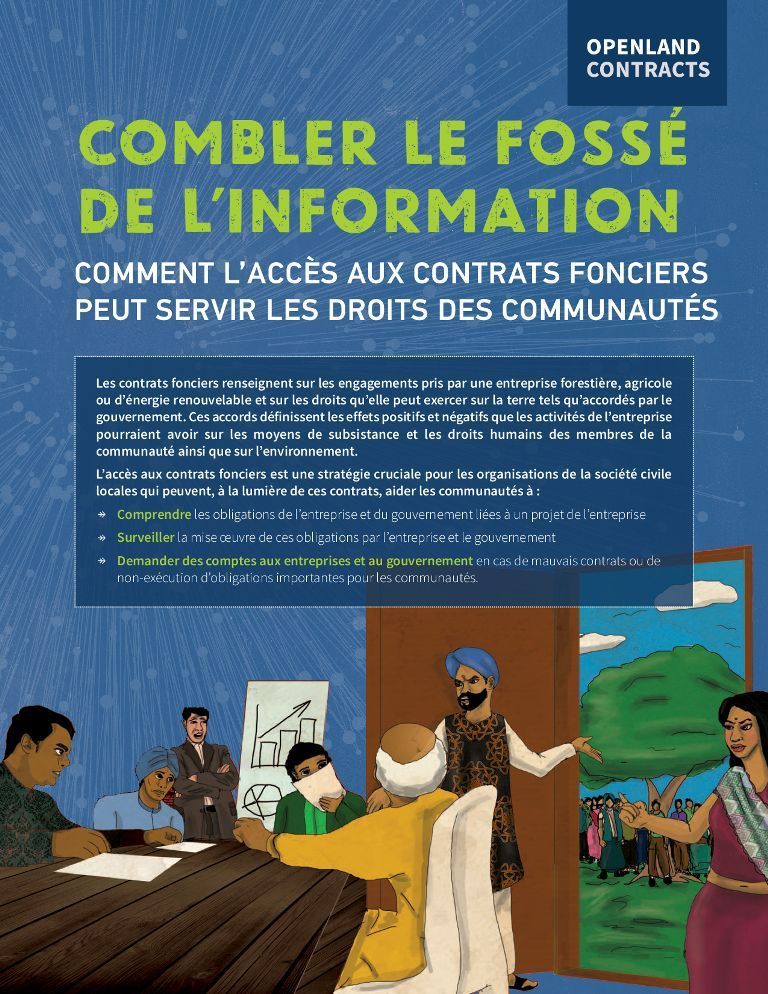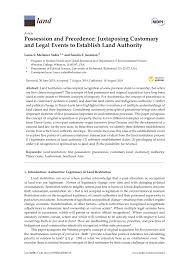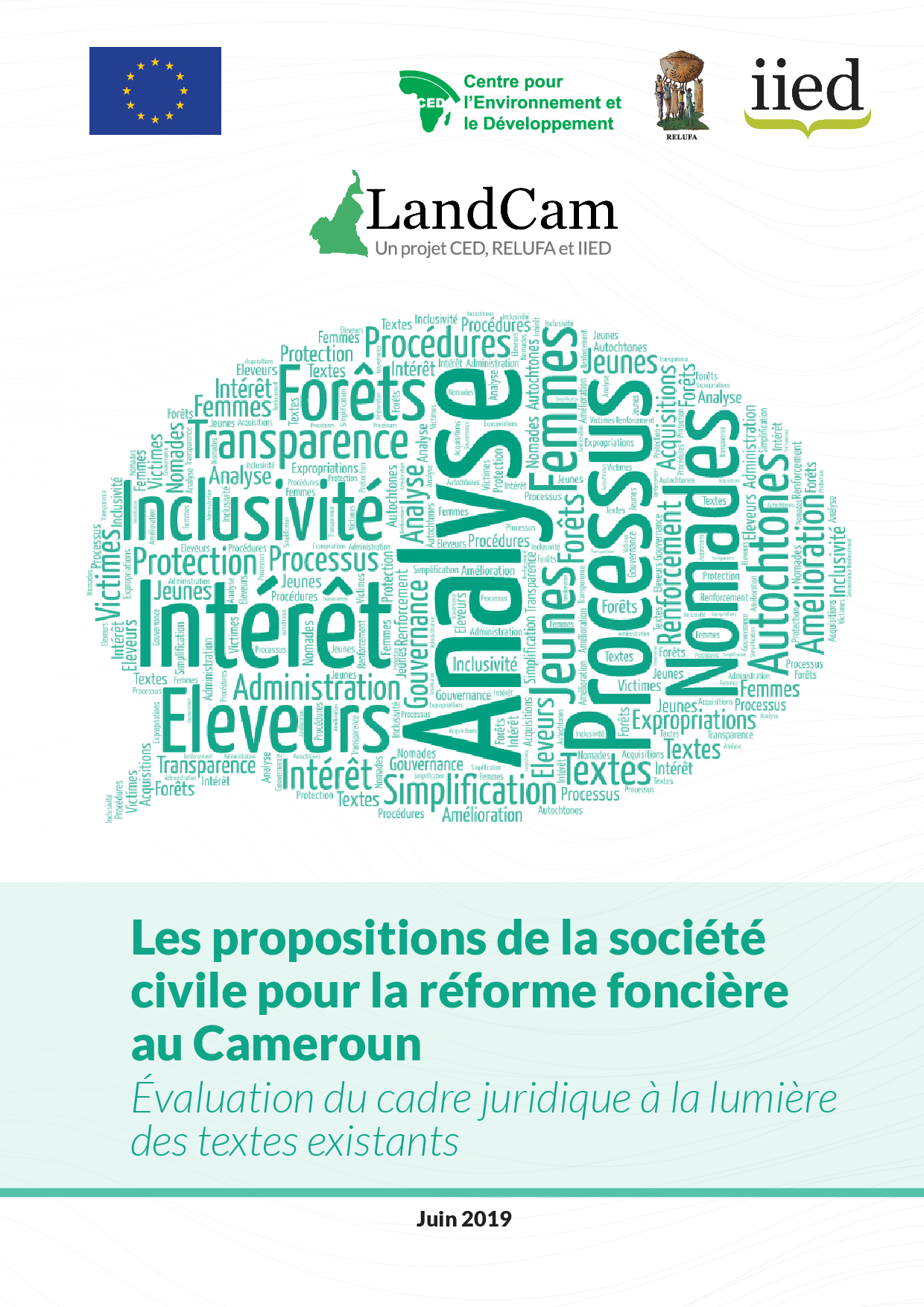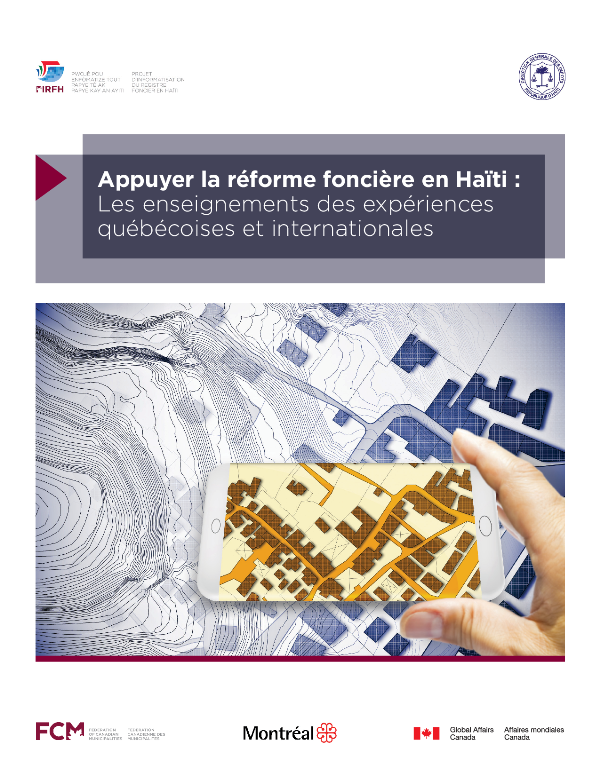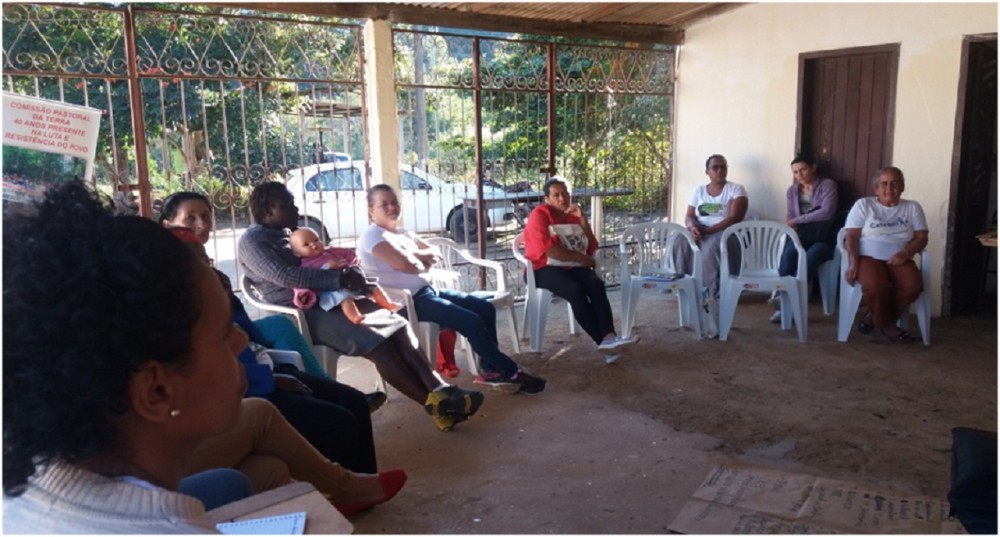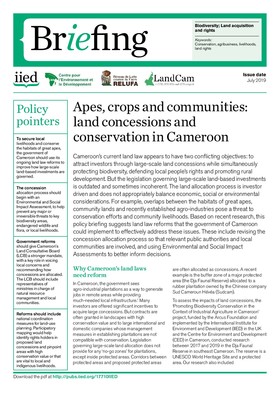Publication de deux policy briefs sur les marchés fonciers et les liens entre foncier et eau en Algérie
Date: 2019
Source: Foncier & Développement
Par: Ali Daoudi (ENSA), Alaeddine Derderi, Jean-Philippe Colin (IRD)
Dans le cadre des divers travaux réalisés sur l’Algérie par le Comité Technique Foncier & Développement, deux policy briefs ont été réalisé portant respectivement sur :

